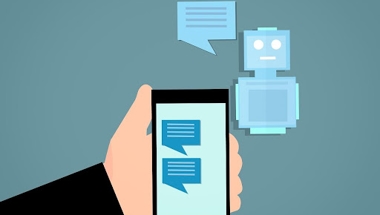Businesses exist to serve customers. The people who choose your business will have a specific need or desire that only you can satisfy. As a business owner, getting to know your customers will be your key to success.
But before you can help your customers, you need to gather some information about them. Who are they? What do they do? What are their expectations? How can your company serve their needs? In other words, you have to truly understand your customer.
In this post, we’ll discuss how you can get to know your customers better and why that matters.
Why Knowing Your Customer Matters
Customers matter because they are the heart of your business. While all companies want to create brand awareness, an even more important goal is creating a loyal customer base. But, if you don't know who your ideal customers are, it won't matter how much you promote your brand. You need to know your target audience and create messaging that appeals to them.
Your target audience is that special group of people who want to purchase from your business now. These customers should be your primary focus because they will help you stay in business. If you direct your marketing efforts toward this group, you can maximize your return on investment.
To help you understand your target audience, it may be helpful to collect some general information. The following information will allow you to build a basic customer profile:
- Name
- Age
- Location
- Education level
- Profession
- Household income
- Contact information
If your company is in the investment and financial services industry, knowing your customers also means verifying their identities. Know Your Client (KYC) is a standard used to protect financial institutions against fraud, corruption, money laundering, and terrorist financing. The three components of KYC include the customer identification program (CIP), customer due diligence (CDD), and enhanced due diligence (EDD). Each new customer is required to provide detailed financial information before opening an investment or banking account.
Knowing and understanding your target audience is the key to your success. It will allow you to give them better service, which will create strong customer relationships and loyalty. Getting to know your customers will also increase your sales because satisfied customers will spread the word about your business through positive reviews and recommendations.
The Benefits of Knowing Your Customer
When you understand your customers, you can better meet their needs and expectations. By getting to know your customers in greater detail, you can improve brand awareness, understand customer value, and grow your business faster.
Brand Awareness
When customers recognize your brand, they will be more likely to buy from your business than a competing business. One way to improve brand awareness is to know your customers and market directly to them.
Understanding expectations, behavior, and preferences will help you create targeted ads for your potential customers. People today spend a great deal of time online. If you know where to reach your customers, you can get your brand in front of them using various social media platforms.
Another way to improve brand awareness is through word-of-mouth marketing. Once you've developed a base of loyal customers, they will be your best advocates.
Customer Value
Collecting data about your customers' purchases can help you understand their buying habits and overall customer value. Customer Lifetime Value (CLV) measures the profitability of a customer throughout their relationship with a business. CLV looks at the total value of their purchases over time, including:
- The average value of their purchases.
- How often they buy from you.
- How many referrals they make for your company.
- The total value of their initial purchase.
- Their potential for upselling to other services you provide.
This is a holistic view of customer value. Individual customer interactions aren’t as important as the amount of revenue they could generate in the future. For example, by knowing this information, you could offer a discount to increase a customer’s loyalty and the likelihood of future purchases.
However, every customer is different, and not all of them will respond the same way. Your knowledge about each customer will determine the effectiveness of your CLV strategy. If you know your customers, you can personalize your marketing and offerings to fit each customer’s needs.
Business Growth
Since your customers are the lifeblood of your business, they are directly connected to its growth. The money they spend and the reviews they share can make or break your brand. When you know your customers, you can better meet their needs. Satisfied customers are loyal and may bring in new customers, helping to grow your business faster.
To achieve customer satisfaction you have to know your customer's pain points. Pain points are problems or unmet needs that can inconvenience customers. Some examples of pain points include:
- Lack of transparent pricing
- Complicated or unclear project schedules
- Excessively long waiting times
- Needing a service above their budget
- Unclear communication between departments
- Dissatisfaction with a product or service
If you know your customer's pain points, you can make your customer’s life easier. Do you have the ability to remove whatever obstacle is in their path? Resolving these issues will increase customer satisfaction. And if you continue to do it, new customers will come streaming through your door.
Know who your customers are, understand the difficulties they face, and resolve their issues. That’s the fastest way to achieve business growth.
Techniques for Getting to Know Your Customer
If you don’t make the effort to know your customers, your marketing campaigns will fall flat, and your business will suffer. On the other hand, if you reach out to customers with personalized messaging, your brand credibility will increase, as will your customer base.
Start a Conversation
The easiest way to get to know your customers is by talking to them. When you ask the right questions, you'll get answers that will help you improve your business. Speaking to your audience directly can tell you:
- Who is listening to you and why.
- What they expect out of your brand.
- What kinds of services you can offer that would interest them.
This is the customer intelligence you need, and you can get it through customer surveys, online polls, and social media conversations. Engage with your customers where they’re most comfortable, and you will get to know them!
Analyze Customer Data
Each interaction between you and a customer is a potential gold mine of data. In fact, you should collect data from your interactions on every platform that you use. This can give you powerful insight into customer behavior, interests, and concerns.
Over time, this data will also help you organize your audience into different segments. Doing this can make your marketing more efficient and increase customer satisfaction through greater personalization. For instance, you can group your highest-spending customers and send them special discounts and marketing offers.
Monitor Social Media
It seems the entire world uses social media today. Regardless of your audience’s platform of choice, you’ll need social media to succeed. Customers will expect to see business profiles and marketing messages from the companies that interest them.
However, although content marketing on social media is important, that isn’t how you'll get to know your customers. Social media also gives you the chance to see their conversations about your brand in real-time. You'll be able to respond to customers immediately and offer on-the-spot solutions to their problems. Social media is an interactive platform that can help you engage in healthy conversations with your audience.
Ask for Customer Feedback
Similarly, every customer interaction is a chance to ask for feedback. Whenever someone makes a purchase, speaks to customer service, or reads a marketing message, you can ask them what’s on their mind. Some may ignore the request, but others won’t, and their responses are worth their weight in gold.
With customer feedback, you can immediately identify areas for improvement. Whether customers give positive or negative feedback, there will always be something you can refine. Customer feedback can even fuel innovation, leading you to new strategies or technologies that will better meet your customers' needs.
Take a Customer-Centric Approach
When you’re promoting your brand, it’s easy to get carried away with creative details and forget about what your customer needs and wants. But, it's important to engage and connect with your customers in a meaningful way. That's how you propel your business into the future.
Scorpion can help you understand what makes your customers tick. Our professional marketing team has extensive experience in customer analytics and has created transformative business strategies for companies of all sizes. Contact us today and turn your ideal prospects into a loyal customer base.



